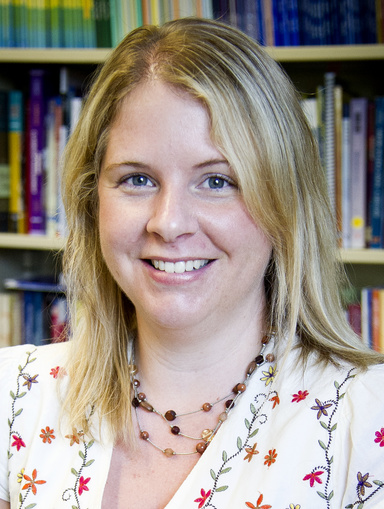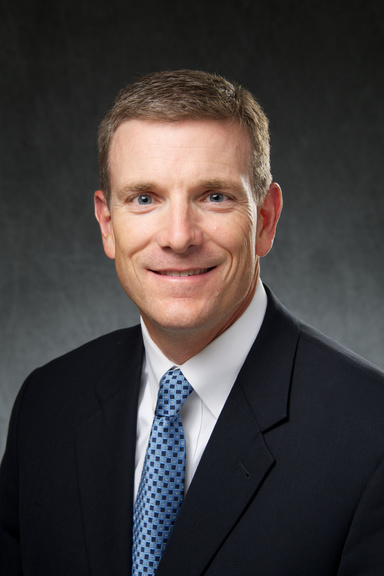It’s time for students and parents to go from thinking about vacationing and backpacking to ensuring vaccinations are up-to-date and buying backpacks and school supplies.
The University of Iowa has a number of sources who can provide expert insights on everything from how find a backpack that won’t create back injuries and developing better sleep habits to understanding the vital role of school counselors and how to work with them in making the back-to-school transition a smooth and successful one.
--
RESOURCES FOR K-12
What do school counselors do at the beginning of the school year?
Expert: Susannah Wood, associate professor in the UI College of Education. Wood teaches both doctoral students and students who are pursing a master’s in school counseling with an emphasis in gifted education in partnership with the UI Connie Belin and Jacqueline N. Blank International Center for Gifted Education and Talented Development.

Expert contact: susannah-wood@uiowa.edu, 319-335-5050
While specific duties depend on the building level, school counselors perform a variety of important tasks in August through October. These include:
- greeting new students and families to the school;
- helping students register for classes or changing school schedules;
- meeting with families, teaching staff, or educational specialists to identify and work with specific learning needs;
- working with community agencies to secure school supplies or other resources;
- reviewing school counseling curricula;
- and creating counseling small groups for students around different topics such as making friends, anger management, and study skills.
- School counselors may also be involved with creating after-school groups like Student Against Violence through Education (SAVE) or after-school study sessions. School counselors are highly active on back-to-school nights and parent-teacher conferences.
But parents and family members don’t have to wait for those specific times to contact their school counselor. The American School Counselor Association recommends meeting with school counselors at least three times a year. A great relationship with the school counselor can go a long way, Wood says. School counselors may have the same students for more than one year, depending on the building level and their assignment. This extended time allows for deep relationships between students, counselors, teachers, and family members.
Healthy sleep habits for kids

Expert: Deborah Lin-Dyken, clinical associate professor of pediatrics at UI Children’s Hospital and pediatric sleep specialist
Expert contact: deborah-lin-dyken@uiowa.edu or 319-384-9261
Lin-Dyken’s tips to help get kids on a sleep schedule:
- Start enforcing wake-up times. Parents may need to slowly move both bedtime and wake-up times to correlate with the school schedule.
- Limit the bedroom for sleeping. Remove TV, computer, video games, cell phones from the bedroom. Do not use the bedroom for “timeout.”
- Engage in quiet activities before bed. Read to your kids, so they get “parent time” and are inspired to read.
- Encourage moderate exercise or physical activity daily, but not within four hours of bedtime. Avoid caffeine.
--
Backpack-related injuries in children 18 and under

Expert: Stuart Weinstein, pediatric orthopaedic surgeon at UI Hospitals and Clinics; and professor of orthopaedics and rehabilitation, UI Carver College of Medicine; past president of the American Academy of Orthopedic Surgeons
Expert contact: stuart-weinstein@uiowa.edu or 319-356-1872
Weinstein recommends:
- Limiting the load in a child’s backpack to no more than 15 percent of the child's body weight.
- Teaching kids to use both shoulder straps when wearing backpacks, rather than slinging the pack over one shoulder.
- Purchasing backpacks at sporting goods stores, where you can find quality packs that will properly distribute weight.
- Encouraging your child’s school to help teach good back health by inviting an orthopaedic surgeon to speak at health classes or assemblies.
--
Immunizations and vaccines

Expert: Patricia Winokur, professor of internal medicine and director of the UI Vaccine Research and Education Project
Expert contact: patricia-winokur@uiowa.edu or 319-356-3909
Winokur recommends:
- Discuss your student’s immunization status with your family physician.
- Ensure that all recommended immunizations and needed booster shots are obtained.
- Evidence-based results show that vaccines are safe and effective.
--
Sports: conditioning, injury prevention, treatments

Expert: Brian Wolf, associate professor of orthopaedics and rehabilitation
Expert contact: brian-wolf@uiowa.edu or 319-353-7954
Wolf recommends:
- Prevention of athletic injuries is the best approach.
- The risk for injury is reduced by being physically conditioned, using proper mechanics, strengthening exercises, and closely monitoring activity levels.
- Younger athletes in particular may also consider avoiding specializing in just one sport, both to avoid injuries and reduce burning out.
--
How to identify bullying and how to help your child
Expert: Marizen Ramirez, assistant professor, UI College of Public Health
Areas of expertise: Bullying, school-based injuries and violence.
Expert contact: marizen-ramirez@uiowa.edu or 319-335-4425
--
